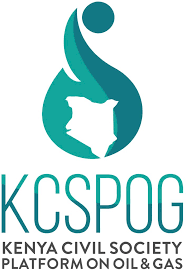Tullow Announces Half Year Results: What they Mean for Oil and Gas in Kenya
By Charles Wanguhu, Platform Coordinator
Kenya’s Oil and Gas sector has been dealt its fair share of blows. Crude oil prices dropped to a record low, as a result of decreased demand occasioned by COVID-19 mitigation measures. In addition, due to unresolved land issues, Pancontinental Oil and Gas and Far Limited announced their submission of surrender and termination notices for the Lamu oil blocks. It is for these reasons that the concessions awarded by the government of Kenya following negotiations with the Joint Venture Partners of the Turkana project raise particular concerns.
In its 2020 half year results Tullow indicates that it has been issued a 15-month license extension to the exploration phase to December 2021. The likely implication is a further delay on Final Investment Decision (FID) and project sanction on the project to late 2021. In reality Kenya would then be likely waiting till 2025 at the earliest for First Oil.
Additionally, the joint venture partners have suspended the farm down process. The process had been started to sell off Tullow 50% stake in, and a portion of Totals stake in the Turkana project. The key word is suspended and not put off the sale. The Tax Laws (Amendment) Act, 2020 put forward significant increments to corporate tax and value added tax. It would appear that, while not speculating, with the tax incentives reinstated the project dynamics have changed and Tullow and its JV partners feel that they may not need to offload their entire holdings and may therefore look to sell smaller percentages of their ownership. While this information is not disclosed, several possibilities exist: a reduced period of cost recovery; and/or reduced corporate or value added, among other tax incentives.
Overall the exercising of Force Majeure by the joint venture partners would appear to have been used as a strong-arm tactic by the joint venture partners to gain better terms. GoK appears to have stuttered at the first hurdle and given up incentives to the company while garnering very little in return. In illustration one would have expected, at a minimum a commitment from the Joint Venture partners to hasten moves towards a FID. In an ideal prepared negotiation, a commitment from JV partner Total to reconsider the Hoima Lokichar route for the pipeline that would make the project more viable would be a good outcome for Kenya
The immediate halting of operations on the ground has had a negative impact on communities impacted by the project and has caused further uncertainty in the areas of operation. With parliament also opening a further inquiry on the force majeure notice further wastage of public funds is accruing.
Kenya’s experience with Tullow Oil and its Joint Venture Partners’ force majeure notice points to a challenge that all the work over the years in ensuring countries get a good deal from their resources, reduce tax incentives that negatively impact resource mobilization and maximization of revenues could be at risk. Hard ball tactics and International Oil Companies (IOCs) taking advantage of governments precarious financial positions may lead to Kenyan’s continued disfranchisement in relation to natural resources.
